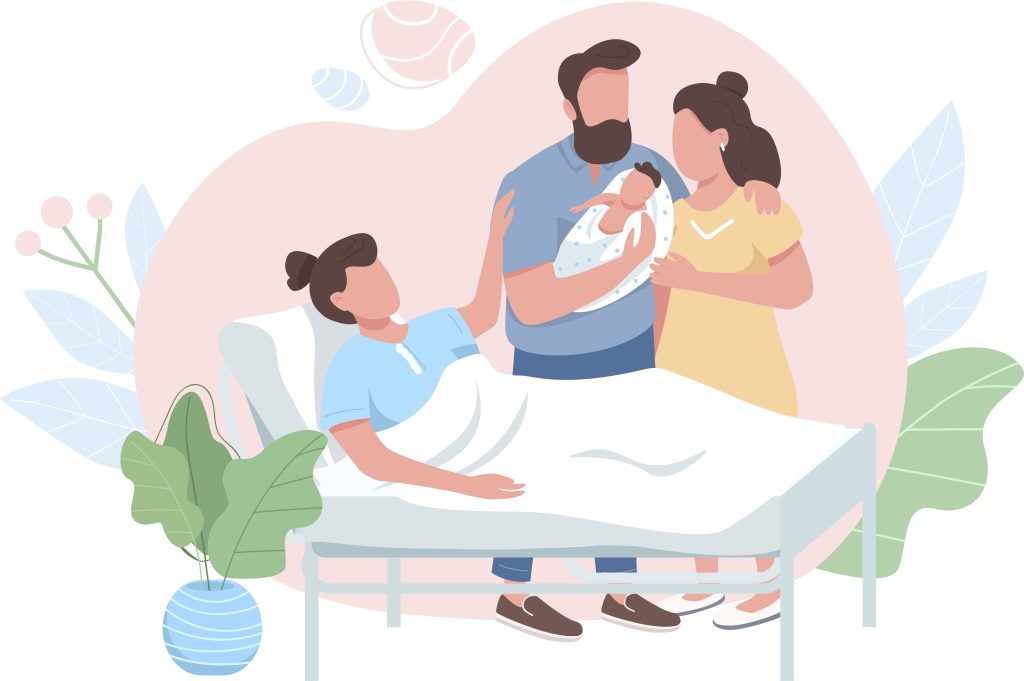The Covid-19 pandemic brought with it disruption to all walks of life. This has certainly been the case in respect of international surrogacy arrangements where surrogates, intended parents and the children born to such arrangements, have found themselves in a state of legal limbo, often in different jurisdictions for unknown periods of time.
The COVID-19 outbreak has resulted in particular challenges for intended parents born by way of overseas surrogacy arrangements. To get a clear picture of the impact of COVID-19 on Surrogacy, Christianah Babajide, Paralegal at Payne Hicks Beach and City Law School graduate, interviews Sarah Williams, Legal Director in the Payne Hicks Beach Family department, and the Head of the Surrogacy, Adoption, Fertility and Modern Family law practice. In this exclusive interview, Sarah offers her insight.
CB: In a nutshell, what is Surrogacy?
SW: A surrogacy arrangement is one whereby the pregnancy is conceived with the intention that the woman who carries and gives birth to the child will not be the child’s mother. There are two forms of surrogacy: straight surrogacy, where the surrogate is both the genetic mother as well as the woman who carries the child, and gestational surrogacy where the surrogate has an embryo implanted, which is created using the egg from another woman.
CB: What is the UK criteria for a parental order (the transfer of legal parentage from the surrogate to the intended parent(s)?
SW: Those applying can be a single individual, a same-sex couple or a heterosexual couple who are either married, civil partners or in an enduring family relationship. At least one of the couple (or the individual is it is a sole applicant) must have genetic affiliation to the child, be over 18 and be domiciled in the UK to be eligible to apply for a parental order and of course, the surrogate must consent. If the surrogate cannot be found or does not provide consent to the extinguishing of her legal rights, this will be an evidential hurdle for the intended parents to cross.
CB: Is Surrogacy legal in the UK?
SW: Altruistic or compensated surrogacy is legal in the UK, but significantly, no surrogacy contracts are legally recognised, meaning both parties must rely on trust and goodwill for the execution of the surrogacy arrangement. Compensated surrogacy is where the surrogate and the commissioning parents agree that in addition to reimbursing the surrogate for costs incurred as a result of the surrogacy, she will also receive a compensation for the inconvenience, pain and risk involved. Commercial surrogacy, which incorporates an element of profit, is not legal in the UK.
CB: What are some of the challenges of COVID-19 for international Surrogacy?
SW: Both surrogates and commissioning parents have quite understandably been concerned about the impact of the virus upon the foetus. For those in domestic arrangements, regional and national lockdowns have naturally restricted the ability of intended parents and surrogates to meet in person. For those who have entered into an international surrogacy arrangement, the travel restrictions have made it difficult for commissioning parents to plan ahead with any certainty to ensure they will arrive at the surrogacy destination in time for the birth and being able to care for the child post birth. They also have to factor in the quarantine requirement upon arrival and upon re-entry to the UK.
CB: How would you advise those looking to enter into an international Surrogacy arrangement?
SW: Choose your surrogacy destination wisely: it is imperative to choose a destination where surrogacy is not just legal but also well-established: a legal framework which supports the rights of intended parents and the surrogate and as a matter of routine, the lawyers adopt best practises such as independent legal advice for all parties and medical and psychological evaluations for the surrogate at the beginning of the process.
CB: What legal factors are there to consider when your surrogacy baby is born during COVID-19?
SW: (in the UK) Follow the advice of your medical practitioner in respect of the baby, the surrogate and yourself and apply to the court as soon as can for your parental order (6 weeks and a day post birth) as the current backlog in the court system may result in a significant delay before legal parenthood can be transferred to the intended parents.
CB: Do you have any advice for intended parents with surrogacy babies due overseas soon?
SW: Check, double check and check again the immigration requirements upon entry to your surrogacy destination and how best to obtain a travel document for your baby to re-enter the UK. Upon arrival overseas, it is likely you will need to quarantine to ensure you are COVID free before being able to attend medical appointments and of course, the birth. If possible, liaise ahead of time with the hospital to ensure they are expecting you for the birth and to make the necessary arrangements (having a pre-birth parental order assists with this). If there is any question that you may not arrive for the birth in time, give advance consideration to the appointment of a temporary guardian for the baby. It is not recommended that the surrogate cares for the baby post birth. Lastly, enjoy your baby!
Quick-fire questions
- Favourite lockdown hobby? Discovering a good podcast.
- What Law would you introduce if you could? The immediate transfer of legal parentage from the surrogate to the intended parents upon birth.
- What’s the best thing that happened to you during lockdown? Spending more time with my family.
About the interviewee:
Sarah Williams joined Payne Hicks Beach over a year ago, with a wide range of experience under her belt. An experienced family barrister, before moving in-house, she has specialist expertise in surrogacy and modern family law. If you would like to learn more about Surrogacy, Sarah has a podcast here, where she discusses whether egg freezing is ever a realistic option in preserving fertility.
Thanks to Christianah Babajide for this fascinating interview. Christianah has a deep interest in the topic and published a short piece on LawCareers.net earlier last year on surrogacy.





